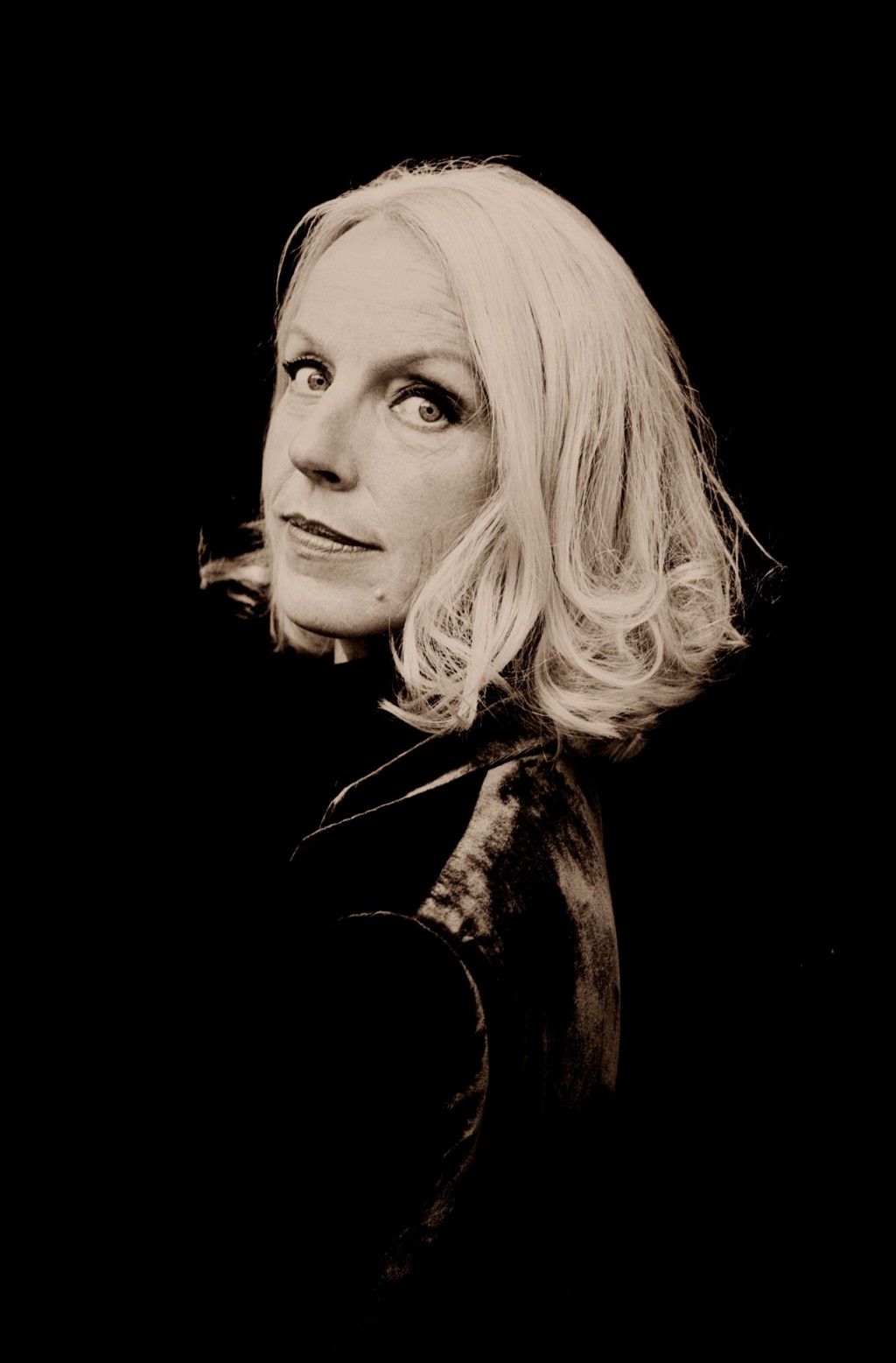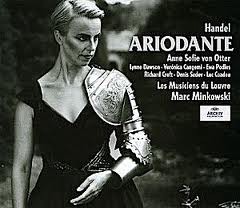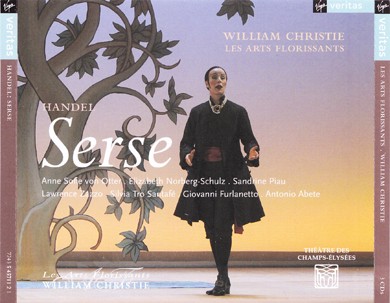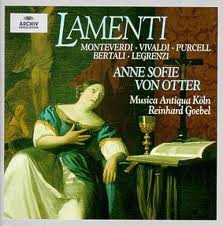I Beg You Hold-Outs To Join Me In Watching 'Doctor Who'

Almost everyone in the English-speaking world has a friend who regularly recruit others to indulge in the wonder that is the television show “Doctor Who.” This friend is annoying, at best! (Also likely unhygienic.) May I give it a whirl though?
In the rebooted show, the Doctor, as even you likely know, is a fast-talking, friendly and adorable time-traveling alien who tends to pick up women, indulge them in bizarre adventures throughout space and time, after which the duo will teeter on the verge of romantic affair and then he will fling them back to their ordinary lives (for, ostensibly, their own good). This sounds terrible and very silly! Yet “Doctor Who” is a rare television show in that it runs on equal tracks of high drama, broad comedy, fantasy and irony.
There are three ways in!
• If you were really going to start with “Doctor Who” and do it up, I would urge that you begin with what is technically episode #157, but what is also Season 1, Episode 1 of the new “Doctor Who,” which had been off the air for 16 years when it returned in 2005. This starts a fantastic two-season story-line… that’ll end with you sobbing your eyes out. No joke.
• You can also quite reasonably start with episode #203, or Season 5, Episode 1, which was the most recent season to air. That will introduce you to the current characters.
• But you may also begin this Saturday, with the first airing of episode #214, or Season 6, Episode 1. Step in afresh! You can always backtrack if you enjoy! And I will get you up to speed.
What to expect.
What I think is off-putting to Americans, in particular, though probably Canadians too, because they’re so humorless, is the “Doctor Who” willingness to go cheesy-lowbrow comedy-drama. Foreign TV has foreign conventions! The first viewing can feel icky and odd. Even the editing feels weird, if you don’t watch non-American TV.
Your tastes will modulate as you progress.
Each episode has, obviously, a plot, and often that plot isn’t (immediately) central to the season’s larger plot, and so each episode often involves silly struggles and fighting with goofy enemies. There is lots of very rapid moderately accented talking, and some goofy feats of derring-do.
But the stakes can be rather low in each episode! You may be somewhat charmed, but you will most not likely be immediately impressed by the drama elements. (Nor by the alien menaces.) You will likely think, so what? And also: this is silly.
You might also think it skews too young for you. (Unlike, what, NCIS?)
But you need to stick around. What the producers and directors are expert at is building stakes over a season, weaving little drama skeins into something substantial as (linear!) time progresses.
Getting you up to speed!
Okay so there’s this dude. He is called “the Doctor.” He is kind of a manic cute nerd. He’s actually a SCARY ENDLESSLY OLD ALIEN with TWO HEARTS. He is against violence, doesn’t like guns and thinks people are really funny. Yes, he travels in a time-space ship that is an old telephone box. (IT’S STUCK.)
For the last little bit, he’s been trekking around with a lady named Amy Pond, who is a mouthy thing, and her fiance, Rory, who is sort of dull but is coming into his own. There has been a bit of a love triangle sexual tension thing (uniformly heterosexualist in nature, unfortunately) that has abated. “Now” Rory and Amy are wed.
The Doctor first met Amy when she was seven years old. He jetted in, swore he’d be back in 15 minutes, and then arrived 12 years later. So everyone thought she was craaaazy. But of course she wasn’t. Amy is a great companion for the Doctor because stodgy old English people think she’s kind of a tart! (She’s Scottish. Racists.)
All the last season, it turned out that time was becoming unraveled! As with any time travel plot, it’s nearly impossible to convey, but let’s just say that a really big explosion happened, leaving behind it little cracks in time, which had a tendency to suck things out of existence (such as Amy’s family, and then Rory, and then eventually almost everyone).
That’s all fixed now though! (Into the heart of the sun!) All better, so you, the delighted new viewer, can start afresh.
Also there is a character named River Song (really) but you don’t actually need to know anything about who she is, because we don’t either. There is an exceptional Quora thread that addresses who she may be, if Quora ever comes back online (it was sucked into a time-hole). Don’t worry about it! Let it wash over you.
Here is another way in.
Yes. If you watched just the first five minutes, you’d have seen 40 different kinds of ludicrosities, up to and including Amy Pond and River Song. The real question is: CAN YOU HANG?
Farsighted Legislation Protects Your Terrible Nut Freedoms
“The Department is prohibited by law from restricting the serving of peanuts aboard aircraft unless a peer-reviewed study determines that serving of peanuts causes severe reactions among airline passengers. There has been no such peer-reviewed study, so we declined to take action at this time.”
— The Department of Transportation cannot take away your American right to having peanuts — the second-worst nuts — on your terrible airplane ride.
Should You Be Worried About The Size Of Your Penis?

Yes. Yes you should. Let’s face it, in today’s fast-paced world first impressions are more important than ever. You only get one shot to really make yourself memorable, and there’s nothing that blows your chances more than having a penis that doesn’t cut it in the bigness department. Whether you are trying to do sex to someone or simply want to impress your colleagues at the company presentation, nothing says more about who you are as a man than the size of your penis. Brains, good looks, a winning personality: all of these pale in comparison to the value others attach to penis bigness. Sure, some people will say that it doesn’t matter, but those people are lying. Look at who we treasure the most in our society: athletes, movie stars, bloggers for websites that have found some level of online success. What do they have in common? They all have gigantic penises. Take the President of the United States: you know he has a giant penis. And before you say, “Well, of course, he’s black,” let me remind you of the historical fact that every president (with the exception of James Buchanan, who was involved in a terrible thresher accident as a boy) has had a huge penis. (When explorers were finally able to locate William Howard Taft’s penis they found that it measured a whopping 6.3 inches flaccid. And he also served as the Chief Justice of the Supreme Court. Coincidence? I think not.) So you can see how important having a big penis is. Now, look down at your own penis. Is it big enough? Well, that depends. If you want to be a loser for the rest of your life, sure. But if you want to be a real MAN, of course it is not. But don’t look so droopy, I have good news for you: There are options! Options that require you to wear a traction device for six hours a day over the course of six months, but options nonetheless. Sure, it won’t be easy. It’ll be long and hard. But if you want a big penis — and you do want a big penis; what is the point of life otherwise? — you have to go that extra mile.
"Straight Men are Doing Stranger Workouts"
“I think more straight men are doing stranger workouts. A lot more people are going to yoga and pilates… and it’s more social, and people are dressing up a little bit more.”
The zeitgeist of New York City, according to the New York Post and a gay gadabout. Goodness. It’s almost like every young person goes through the same trends every two years and announces them as global!
Our Dying Soap Operas Deserve Public Funding
by David Ozanich

Surely you’ve heard the recent news that long-running daytime soap operas “All My Children” and “One Life to Live” are being canceled. Sad. Yet not that sad because no one watches American daytime soaps anymore, right?
Wrong.
I’m that person who still watches them. Well, by “them” I mean “One Life to Live.” I’m devastated by its demise and you should be too. We’re losing a national treasure. This is akin to tearing down the gilded Penn Station to make room for the depressing Madison Square Garden. The daytime soaps are a national heritage that should be protected and cherished.
I first learned of Llanview (the fictional Philadelphia suburb in which “One Life to Live” characters go about their business) when I got an internship in the show’s writing department. Years later, I was hired to write for SOAPnet.com and I was quickly handed the Llanview beat. Thusly, it was my job to go to ABC headquarters every day to watch “One Life to Live” and then blog about it. Obviously, this was a pretty good job (and sadly, like travel agents, a profession that is soon to be gone with the wind).
And so I watched. Not just with the casual attention of a low-functioning housebound recluse, but with the ardent, deep concentration I would have given a Robert Altman movie in film school. I became so well schooled in “One Life to Live” that I once gave an hour-and-a-half lecture on its history and storylines to a rapt (OK, likely bored) audience of ABC employees.
(FYI for non-viewers: “One Life to Live” employs the typical-of-daytime Shakespearean premise of rival clans fighting and romancing. In the show’s modern era the two primary families have been the Buchanans and the Cramers. Without going into the gory, complicated details, they are headed by good girl Viki, played by Erika Slezak for 40 years, and the manipulative Dorian, portrayed by Robin Strasser on-and-off since around 1980.)
When I left that job I did not stop watching the show. It was only at this point that the real power of the genre began to reveal itself to me. Before that, it was a job; a beat; a responsibility. Freed from that burden, I was able to begin a relationship with the show much more like that of the average fan. I would put it on in the background while I answered emails or folded laundry. (DVRs help with time-shifting — even I, as an under-employed writer, am not usually home at 2pm EST.) Suddenly, the sometimes maddeningly slow pace of the show became a positive as opposed to a negative. I could pay it half-attention but always get the gist of the day’s dramas. “One Life to Live” was now sewn into the fabric of my life in the same fashion as Oprah or NPR.
Anyone who knows me can vouch for the fact that I’m a sad, lonely person and you should probably pity me. But in my defense, let me state that I’m not the sort of person who ignores my own life for the fictional lives of others. I’m invested in these characters the way I’m invested in Wonder Woman — intellectually but not emotionally. Despite the show’s overall narrative of victimization (the popular characters are most often hapless victims of others’ malfeasance rather than active aggressors in their own right), I became charmed by many characters including the Southern and blond Blair Cramer (formerly of Japanese descent), her handsome five-time ex-husband Todd Manning (formerly with a different face), and Todd’s new wife, the fiery Latina defense attorney Téa Delgado. They’re fun, wild, mouthy and, along with Dorian and Viki, fabulous to watch.
Here’s where I make the pitch: You really should start watching “One Life to Live” before it goes off the air. There are three reasons. One, it is easily the best American daytime soap (I will avoid comparisons to the serials of the British Commonwealth or the still wildly popular telenovelas). Two, it will be over soon so it isn’t that much of a commitment. Three, a daytime soap opera is the modern equivalent of the Victorian novel. This is Dickens, people!
As we barrel towards a finale 43 years in the making, “One Life” is going out on a high note. Currently, the scheming Dorian is mayor of Llanview. Queen of Good Intentions Viki has succumbed to her Dissociative Identity Disorder and is now operating as one of her seven alternate personalities, Niki the town scamp. Her husband has just been stolen away by Echo, a woman who last appeared on the show in the early 1980s (played both times by Kim Zimmer of “Guiding Light”). This represents a key selling point. The narrative history is so expansive that the show can easily resurrect characters from a seemingly never-ending well of former bit players. Even Dickens would have a hard time competing with the level of completeness that the collective imagination of four decades of writers, directors, and actors have brought to “One Life to Live”. It requires a dedicated staff to track continuity — sort of like the New Yorker’s famed fact-checking department. We’re losing a genre that should be heralded for its unrivaled longevity and utter uniqueness of form.
I would like to suggest that the federal government step in and subsidize this art form in the way they fund public broadcasting or the NEA. I realize that this is a pipe dream in our current political climate, but what would “East Enders” be without the BBC? Personally, I would rather see “One Life to Live” on PBS at lunchtime than the usual Charlie Rose repeat. The government funds all sorts of dead art forms that no one cares about like ballet, theater and opera, why not soap operas? What’s a $50 million production budget compared to the billions we spend on Medicare?
You might be saying to yourself, “Why should my tax dollars support ‘One Life to Live’ when we have ‘The Young and the Restless,’ ‘Days of Our Lives,’ ‘The Bold and the Beautiful’ and ‘General Hospital’ still before us?” The reason, besides the superior quality of “One Life,” is that the cancellation of this show and “All My Children” is the bellwether of things to come. All of these shows are deemed “dated” and “unhip” and will soon be slain by reality TV and chat shows — and that is if we’re lucky. More likely it will be “Dancing With the Stars” repeats and infomercials. The cancellation of “One Life” is the Gallipoli for soap operas. They’re fighting a losing battle to stay on the air.
I beseech you to put “One Life” on your DVR for the next nine months. I really don’t think you’ll be disappointed. In fact, I think you’ll become just as infatuated as I have. And then in January, when it goes off the air, we can all mourn together for another dead art form. See you in hell, Vaudeville!
David Ozanich is, among other things, a playwright, travel writer, and the co-author of the YA novel series “Likely Story” about a teen soap opera.
Morrissey Has A Lot To Say
Morrissey is in agreement with his former bandmate Johnny Marr: British Prime Minister David Cameron is not allowed to like the Smiths. He also claims to have written 660 pages of a forthcoming memoir!
Check Out PopPressed Brought To You By The Lexus CT Hybrid
by Awl Sponsors

You know what’s hard? Figuring out what’s worth reading on the internet and what’s not. There’s a lot of stuff out there! That’s why the all new Lexus CT Hybrid has teamed up with several websites, this one included, to create PopPressed, a filter that helps you navigate the murky waters of the internet.
Here’s some recently endorsed PopPressed selections:
- Francopolis — ‘The Book Nerd’s Guide to Springtime Music’ — Often times going outside is overrated, for those very occasions, you need at least a good playlist for when you’re holed up while it’s sunny outside. This is that playlist.
- The Domestic Man — ‘Lemongrass Pork Chops’ — Exactly what it sounds like, the Domestic Man provides a recipe for a delicious sounding (and looking, with lots of pictures) pork chop. And really, in our heart of hearts, aren’t we all just domestic men?
- The Awl — ‘Vanity Fair’ Really Is Made of One-Third Kennedys-Related Content — This one is pretty good too!
Somewhere To Cry About

Where is the saddest place in the city to be seen sobbing? As someone with an apparently innate ability to observe his fellow human beings at their lowest moments, I would have to say the grocery store: There is something about seeing a woman wheel a wagon through cramped aisles of processed foodstuffs, tears streaming down her face as she continues to fill her cart with the mundane items of our existence, that seems to violate the conventions of basic human dignity. (Duane Reade runs a close second for similar reasons.) Then there are the parks: Someone sitting on a bench, carefully unwrapping his lunch while quietly weeping, is a painful reminder of all the assembled heartbreaks we spend our days attempting to push past. And, of course, there is always the subway. And buses, which are even worse, mostly because you’re on the bus. Come to think of it, pretty much every place in town is a sad place to cry. I once had the idea to start a business that rented out rooms on an hourly basis where people could come to cry without worrying about being seen by their roommates or partners or coworkers. Maybe now would be a good time to follow up on that.
Photo by Ed Yourdon, from Flickr.
The Varieties of Emails That Lady Writers Receive
“Because of the time difference, I received these communications — mostly invitations to suck different kinds and numbers of cocks — first thing in the morning.”
— The life of a lady writer!
Anne Sofie Von Otter And The Queer Diva Worship Of The Mezzo
by Lydia Perović

For about a month now I have been corresponding with a new friend in the Netherlands. There are sixty messages in the folder I named after her — the number will grow before I finish this article — and she probably has at least as many from me. In spite of all the lively conversation, I know little about her. I’m certain of her gender, and I trust that she gave me her real name, but that is about as full of a biographical sketch as I can give you. The rest is covered by impenetrable cyber mist. We don’t talk about each other. Since we discovered we share a diva assoluta, there is nothing else more pressing to talk about than the mezzo-soprano Anne Sofie von Otter. Never underestimate the bond that two strangers can establish when they discover that in the world of competing paganisms they worship the same divinity.
Not unlike Calisto and Linfea, two of the nymphs in Cavalli’s 1651 opera La Calisto who inhabit the Arcadia under the spell of the goddess Diana, we meet at river banks, so to speak, and feed each other’s adoration for the Huntress. Has she heard this hour-long interview in French in which von Otter says that you could seduce anybody by playing them a recording of the second movement of the Ravel’s Piano Concert in G? Have I read the Austrian reviews of her recent Baba the Turk in Vienna and would I like her to translate them for me? Has she seen the images of von Otter as a grandfatherly Orphée? Do I know of this site, which archives the scores in the public domain? She heard Otter live in Rotterdam last year, I heard her live for the first time this February in Toronto. We are planning to meet in June in Germany, my Dutch blood relation I never knew I had and I, so we can see von O as Charpentier’s sorceress Médée at the Frankfurt Opera House. Eventually, our conversation will circle around to mundane matters like age, vocation and the rest, but once there is evidence of the esthetico-visceral kinship that is shared diva worship, the rest is mere details.
Much has been written about diva worship, female and male, in the last twenty years. Female and male, yes, but somehow always inevitably queer. (If you know of any straight men-produced body of work around diva worship with all its requisite primeval components and self-effacing, you must call me. Beineix’s film Diva does not qualify.) Many straight men do get the unruly and complex gendering in the opera — Verdi’s valiant messenger Roger Parker, for instance — but like the operatic mad scenes, diva worship is primarily the domain of women and queens. (I always misspell worship with an “h” after “w” for some reason. Worship to the point of whoring of the soul?) For this occasion I will skip the remarkable gay men’s oeuvre, spanning from Wayne Koestenbaum Diva’s Throat to the dazzling and hilarious Parterre.com, as well as the growing blogosphere of straight women fainting-while-posting over male singers. This essay is within the tradition of queer women obsessing about opera — and women being queered by their opera obsessions — and particularly queer women mezzo whorship. I meant, worship. Terry Castle famously came out as a Briggy-flapper in the early ’90s with “In Praise of Brigitte Fassbaender” and showed that there is a long history of women behaving badly over their divas. If you ever wonder if you’ve lost your marbles, consult Castle’s piece and you’ll see that since even Queen Victoria did what you do, it can’t be that bad. Can it?
Collections like En Travesti, Queering the Pitch and The Diva’s Mouth were further milestones in lesbian operantics. Besides, we all write and listen to the music in the formidable shadow of the feminist women and men of the New Musicology, who ushered in a new era of musical analysis, the kind that raises questions about the meanings of the music and its historical, political, national, sexual and other contexts. Susan McClary, for her now classic Feminine Endings and everything else she’s written since, deserves a strand of diva-worship all of her own.
***
But let me introduce you to my tribe. One very prominent sect of the queer opera-goers are the Mezzo Pazzi, mostly female, mostly queer voluntary slaves to the mezzo-soprano voices.
Many spectacular trouser roles that now allow mezzo- and alto-range women to sing powerful male characters have been inherited from the roles sung by the castrati, but not exclusively: once the castrati disappeared, composers continued writing trouser roles for women well into the twentieth century. In Handel’s time, according to Richard Somerset-Ward’s Angels and Monsters, while castrati covered the higher tessitura fandom, the deep female voices like Mlle Maupin achieved their own share of mad following. Anna Renzi, for whom Monteverdi composed Ottavia and who would today be classified as a mezzo, was the Callas of her time and probably the earliest diva to receive fan fiction and very high-brow fan fic at that: Le glorie della Signora Anna Renzi is a collection of writings and poems by her notable contemporaries eager to elaborate the finer points of Renzi’s gloriousness. Those who presume that the mezzo owes everything to the castrati therefore should be corrected and spanked. Mezzos get it on with other women on stage not because castrati used to, but because it’s an artistic phenomenon that’s been appreciated by audiences throughout operatic history.
It took the 19th century and Verdi and later Puccini to blend two rather contradictory things — helpless femininity in a dramatic character and a soprano voice of enormous stamina and technical mastery — for the features that we now associate with soprano divadom to emerge. A straight niche within the opera further affirmed itself with the establishment of the soprano-tenor-baritone and soprano-tenor-bass triangle as the basis of some of the operatic dramas.
The history of the dramatic mezzo-soprano runs parallel to the development of this traditional triangle. The mezzo-soprano is often an outsider, sometimes a liminal creature with superhuman features, either racial or sexual or metaphysical mestiza who knows too much. (In these same operas, there was also a remarkable degree of bromance and Eve Sedgwickian homosocial ties, seemingly of competition, but in effect of bonding between male characters.) So in spite of the fact that yes, Puccini and Verdi’s works haven’t seen many gender-busting stagings in their history — the baroque and the early bel canto, the Classical period, Wagner, the operetta and the 20th-century music have seen many more — the gender politics of their works is not unequivocal.
That is the preamble, then; the sets of the stage which, while important and duly noted, belong in the background of the music about to start.
***
Anne Sofie von Otter, like many a lyrical mezzo, wore the trousers for Mozart’s Cherubino first and continued on to sing trouser roles and redefine not a small number of them. In his Singers of the Century, J. B. Steane recalls noticing von Otter in 1985 and even her first recording in 1983, and observes then what many will later: a lavish voice moderated by a style of restraint. After so much listening and viewing I can, unburdened by the concerns of restraint, describe it like this: the volcanic adjusted for human-scale consumption of energy. The unleashing withheld for our own good. Procedures in place to avoid getting too close to the sun. All the talk about von Otter’s timbre being “Nordic silver,” reports of her sedate and cool demeanour, the many Scandinavian composers whose work she has recorded and still performs in Lieder recitals with the fluency in aural ice — all that is there for this reason: to prevent us from burning.
The printed editions of the Oxford Dictionary of Opera were in on this already in the mid-’90s. Under “O,” a very short and to the point entry can be found which, before listing a few of Otter’s debut dates and early roles, ends with “Possesses an outstanding voice and technique.” It’s a surprisingly short entry, almost cryptic, certainly stingy. This is also for a reason. The reference book is in effect saying, All under control, moving on, don’t hold up the traffic. Mobbing must be prevented.

I was born too late and then wandered about too many lands too distant from the action to have been able to hear live von Otter’s classic trouser roles. Every now and again I will meet, online or in person, somebody who had heard von Otter as Ariodante in Paris in the ’90s, and they will inevitably, and rather smugly, reiterate that it was a highlight of their opera-going life. An older friend from New York told me she saw her as Mozart’s Sesto in two different production, and each time “every note was made of awesome.” Luckily, there is the CD of Ariodante (baton Marc Minkowski) and Serse (baton William Christie), a live recording of Giulio Cesare with Otter as Sesto and a studio Hercules/Dejanira (both Minkowski) so von Otter’s stage Handel is far from being exclusively a matter of oral history. She still occasionally performs selected Handel arias in recitals and sung Ruggiero at Drottninghol in 2003, but her interests have moved away from Handel. The definitive Ariodante of the last quarter century now lives in recordings. You can take “Scherza infida” and “Dopo notte” and be crushed in the relative safety of your own home.

I’ve also talked with people for whom von Otter is the once appointed and forever exclusive Octavian of Strauss’s Der Rosenkavalier and who’ve listened to her for many years, sometimes decades. I’ve met those who had had her recorded voice accompany many important occasions in their life and consider it a home. I envy them violently, but I listen to their accounts, defer to them, join them in Otterhood as you would listen to an elder of a tribe who has experienced much more than you. I come late to the party, but I’m very much here now. For me, von Otter’s voice is not exactly a home. It is L’Isola d’Alcina, a fantastic place of several Ariosto-based operas where the sorceress keeps the privileged victims of her magic in various animal, vegetal or human-somnambular forms. It promises — or threatens — to stay Alcina’s fantastic domain for years ahead.
The Otter Octavian lives on in recordings, one of which is a DVD of the Carlos Kleiber-conducted Vienna Staatsoper production. What lives on as oral history only is the missing link of von Otter’s bel canto. There are a number of sumptuous bel canto roles for the mezzo-soprano, some in trousers, others in skirt, all offering plenty of room for vocal pyrotechnics and drama, but after the early successes von O dropped the bel canto repertoire entirely. Except for the uniformly positive newspaper reviews archived in libraries and a lucky crossing of paths with somebody who was in the audience, I will never really know what Otter’s Romeo sounded like. She debuted the role at the Covent Garden at the beginning of the ’90s and that is where the story ends. On YouTube you can find a 1986 recording of her singing “Non più mesta,” the final aria of Rossini’s Cenerentola (another role that she sang at the ROH and promptly abandoned), and a bootleg (bless you, the pirate of my heart, whoever you are under your YT handle) of her Tancredi in Geneva from 1990. And that is it. Why did she stay away from this repertoire so doggedly? When she tells the interviewers that bel canto was never her favourite thing, they never pursue this but move on to ask her about Elvis Costello. So we dig away on our own, the Otter bel canto Illuminati, treating it as a missing book of the Bible, an apocryphal and very idiosyncratic gospel in the canon of Otter.
How to name us accurately, I wondered? The Otter Nutters. The von Hotter fire brigade. Les demoiselles jouissantes de Madame von Hauteur. Lotterio’s valets. Perhaps better to stay faithful to the imagery I started with, Le nimfe di Diana.
***
What do we talk about when we talk about operatic voice? Not primarily the voice. Certain anatomical parallels have been drawn since the humans started thinking about singing. Assuming connections between the throat and the female sexual organs goes as far back as Galenic medicine, and doesn’t end in our time. The scientific inquiry into it now looks much different and mostly concerns the hormonal body, but the paradigm has not been abandoned as entirely baseless. Singers are also aware of it and the brave ones talk about it: legendary German mezzo Christa Ludwig was quoted as saying in no uncertain terms that the “vocal cords are very much like the vagina — it is the same tissue.” (In this 1999 interview by Tamara Bernstein for Toronto’s National Post.)
In her 2004 book Monteverdi’s Unruly Women, Bonnie Gordon lists the many wildly imaginative links between the throat and the vagina or the uterus that have been suggested over the centuries. It doesn’t end with the parallel mechanics of the two organs, of course: the effects of singing were believed to mess with the well-ordered body as a whole. “The heat that came from singers’ amplified circulation of air and breath mimicked the intense blood flow of sexual activity” (p. 33, chapter ‘Mouths, breath and throat in early modern Italy’). This wisdom has also survived as an intuition, particularly among opera lovers and diva worshippers. To say that singing and the adoration of the singing voice are sexual processes is an old hat of an idea indeed.
The downside of this idea is that a woman’s vocal credibility gets tied to her age. The opera circuit is as ageist to its women as Hollywood is to its. Approaching the birthday number 50, opportunities drop and the tenor of media criticism changes. Try to read the reviews of the women over 50 and compare them with reviews of singers under 40 and a pattern will emerge. Adjectives used to describe their voices are actually describing the fantasy (that the author and his readers likely share) of their bodies. Voices start being described as “frayed,” “thinned” at the top or bottom, “dry,” “forced,” and I’ve even read “hysterical” a few times; voices also become “bigger” after the singer has a baby. The body spectre in a younger voice appears more pleasant than its older equivalent, which causes unacknowledged anxieties to emerge in the reviewing. It’s very surprising that opera, which in its fantasies welcomes all kinds of freakishness and monstrosity, still struggles to accommodate the rather ordinary and irreversible phenomenon of aging for its women, although it succeeds in doing so for its men.
(I am not sure if the ageist reviews will happen to my diva assoluta — I suppose we will see in the next few years. If it does, we who came to the party a little later hope she toughens out the transition period, from when people start noticing that a singer is over 50, till the period when people have gotten used to the thought.)
Apart from talking about sex, then, another thing we talk about when we think we are arguing about the technical aspects of the voice is style and personality. The best voice critics have a plethora of tools to describe the many sides — technical, dramatic, linguistic — of the singing voice, and that is a shared vocabulary. What often happens, however, is that the conversation about singing quickly turns into a conversation about matters intangible and ethereal, like charisma and style. So even as we speak of a singer’s technique and analyze the seemingly easily measurable highs and lows of a performance, what we are really communicating is our irrational passion for one kind of style and our total resistance to another.
All the same, let me try and talk about von Otter’s voice for a bit before I inevitably end up talking about the intangibles and the elusives. Her voice is usually described as consistently rich and muscular from its bottom register to the top, as having a bendy and taut vibrato, and as almost chameleonic in its potential for dramatic expressiveness. (Forgive me if some of this sounds rather smutty — I didn’t create the vocabulary.) The timbre is often said to be all light and silver, almost sopranistic, although the more of her recordings I amass, the more I disagree with this description. True enough, nowhere is the light more obvious than in her Mozart trouser roles. Otter’s Sesto in the recording of La Clemenza di Tito sounds lighter in colour than his beloved Vitellia, soprano Julia Varady, and her Idamante in Idomeneo (both works c. John Eliot Gardiner) as if she is permanently stationed at the fountain of youth. Many of her Scandinavian and to a lesser extent German Lieder have the quality of light: much of Otter’s Grieg and Sibelius brings to mind the play of refractions of light in a crystal.

But that is only part of the story. While many say the average Otter color is white chocolate, I’d insist that it is rather café au lait with many significant forays into the darker macchiato. There is a certain forcefulness in von O’s voice that never dwells in anything remotely girlish. When I first heard her Dido in Purcell’s Dido and Aeneas (baton Trevor Pinnock) I thought it was refreshingly butch; dozens of listens later and it’s still the voice of a queen rather than an abandoned soprano. For days now I have been listening to her Nuits d’été in which if there’s any light at all amidst the ecology of many shades, it’s of the underwater kind. Vivaldi’s cantata “Cessate, omai cessate” (in Lamenti, c. Reinhard Groebel) in her rendition never fails to terrify me with its aggressive fury. Why do I go back to it over and over, as if I can’t resist a dangerously shaky makeshift bridge over an abyss? I don’t know. Maybe von Otter’s voice has the ability to make a masochist out of one? This is, then, yet another reason it can’t be called bright-light. On that same disc there is at least one other lament that I’m trying to stay away from. Enter “Incassum, Lesbia” at your own risk. I have been engulfed in such awful hair-rising sadness by it too many times.
There are occasions when her voice acquires even a deeper shade. It has nothing to do with the tessitura. I am talking about her Phèdre (Rameau, Hyppolite et Aricie, c. Minkowski (Mezzo TV broadcast)), Médée (Charpentier, Médée, c. William Christie (CD Ombre de mon amant)), and some Sibelius Lieder like “Svarta Rosor.” Here, it is precisely in the high sopranistic reaches that von Otter summons the darkest horror.
Don’t let me mislead you: not all is demanding in the land of Otter. There are few stable floats in this world and Otter’s joyous Ah is one of those. You will find it at every turn in the Offenbach CD (c. Minkowski) and the Cécile Chaminade mélodies (piano Bengt Forsberg). In the same sprit are the Korngold-Shakespeare songs (Korngold recital DVD), but for the unadulterated lust for life see Carmen (c. Jordan, d. McVicar, Glyndebourne DVD), which redefined the role with her gruff, Amazon eroticism. How could we have ever forgotten that Carmen is undoubtedly a top?
***
About that Carmen.
The author of the short story about Carmen in the DVD booklet is Jeanette Winterson, who decided to narrate the story from the perspective of a Don José losing his bearings. Not because the Don is a particularly interesting character, but because with him we can observe, adore and misunderstand Carmen. Winterson’s novels abound with opera references, and they also abound with adoration for red-haired women (Written on the Body, The Passion, GUT Symmetries). Von Otter’s Carmen is atypically red-haired, and so is Carmen in Winterson’s story. Whether this was by heavenly accord or by way of McVicar phoning Winterson and informing her of the color of von Otter’s wig matters less than the perfect rhyme of it all. “Somewhere between fear and sex passion is,” says a character in The Passion, and some years later von Otter’s Carmen shows this on stage.
This warped kinship with Winterson’s characters is yet another reason for von Otter’s prominence in the pantheon of queer icons. In particular, icons to queer women, as there is often a disparity between lesbian and gay icons in the opera world. Which does not mean that only queer women fall for Otter: everybody falls for Otter, women, men, children and animals of all persuasions, but they will have to write their own paeans.
According to En Travesti, the North American lesbian worship of von O took fire the night of the Met Gala 1991, which Otter MC’d as a stunning Prince Orlofsky, but I am sure the European Sapphisticates noticed her much earlier. The lack of recorded video for the earlier years is a pity. I thought that the Orlofsky of that gala (recently released on DVD by the Met) was a love child of Bjorn Borg and a Scandinavian slalom skier type, though I’ve read comparisons with the young David Bowie, that are equally apt. None will entirely capture the suavity, debonair-ism and gallantry she brought to this and other trouser roles, not to mention the naturalist, what’s-the-big-deal attitude about courting women on stage.
In Otter’s vast and diverse recording output, just about any CD, no matter the composer, will inevitably contain a high percentage of Lieder, mélodies or songs sung to a woman. Perhaps a conscious nod to her queer fans — “Yes, I know you’re there, and you matter” — but, more likely, a reflection of a relaxed attitude to re-gendering in music. It’s more probable that the pieces are chosen first, then the genders noticed, rather than gender noticed first and room for queering assured, but either way it’s splendid news. Together with other Otterians I have searched for the rare uniquely straight CD by von Otter, and it took some time. It must be the Schumann cycle Frauenliebe und –leben, as my Dutch relative suggested. The recent Love Songs comes very close though doesn’t entirely make the cut. The pool of candidates remains slim.
“I don’t mind being made ugly on stage; in fact, I welcome it” (Die Welt, Nov 2010). “Music can’t just be a beautiful sound. That’s not for me. Something needs to be off, unusual, disturbing, there need to be points friction. Otherwise, it’ll be boring.” (French Radio Classique, Dec 2010). Lucky for us that this is von Otter’s policy, as it has brought some daring interpretations. Among those have recently been the portrait of Orphée as a very old man in the Royal Swedish Opera’s 2007 Orphée et Eurydice and Baba the Turk in Theater an der Wien 2008 production of The Rake’s Progress. In the Stravinsky/Auden opera, Baba the Turk, apart from being the only likeable character on a roster of the debauched and the sanctimonious, is a circus attraction. Instead of a long beard, in Martin Kušej’s contemporary staging, Baba is sporting a dangly organ of a different kind. We Anglophone Otterians must rely on Austrian reviewers who understandably avoid spoilers about if and how the said organ makes its appearance when, in the opera, the original Baba unveils her beard. Was Baba the intersexual, transsexual, transvestite or a tall woman with a strap-on? How much did the audience see? Yes, I sound like I’m getting very close to the mindset of a voyeuristic circus goer / prurient media consumer that the Kušej staging warns against, but there you have it — another Otter effect on relatively reasonable people.
If you were to own only one recording from the Otterworld, dear queer-estvuyushchi reader, that must be L’Incoronazione di Poppea DVD Aix-en-Provence AD 2000, c. Minkowski, d. Klaus Michael Grüber, plus a stellar singing cast. Desire for a woman can’t get more restless and more ruthless than in von Otter-played character of Nerone. To the already excruciatingly carnal score of Monteverdi, who musicalized the sensuous and sexual exchanges of Nerone and Poppea (and Nerone and Lucano’s about Poppea) through interweaving, teasing and surrendering vocal lines, an intriguing kind of stage movement was added. Mireille Delunsch’s Poppea is the one who adopts the position of introversion and passivity even though she controls much of the situation. This is in accord with her chromatic score — as if she can’t be bothered to sing up or down more than a semitone and so tantalizingly stays there. When she is with Nerone, she is being looked at and encircled, and that is where her pleasure is derived. Nerone, on the other hand, is a nervy restless lad with the fingers and tongue that are out of control, warranting their own choreography. I wasn’t sure who was behind Nerone’s stage movement, Grüber and Minkowski, Grüber and Otter, Grüber only? Whoever thought of it first, it is Otter who renders it most beautifully obscene.
On other L’Incoronazione occasions von Otter sung Ottavia, Nerone’s repudiated wife and one of the most written about operatic characters by musicologists, feminist and otherwise. Musicologist Susan McClary analyzed Ottavia as an early model of a woman speaking in a public sphere and another feminist musicologist, Wendy Heller, looked into Ottavia’s idiosyncratic musical material, the sources from the antiquity used in the libretto, and the possible effects of such a character in the not too women-friendly artistic and civic circles that Monteverdi and the librettist Busenello belonged to. Then there are the writings about Anna Renzi as Ottavia. One von Otter Ottavia can be heard on the Gardiner-conducted recording of Incoronazione from ’96. There are snippets on YT of a televised broadcast of René Jacobs-conducted, McVicar-directed Incoronazione in which Otter as Ottavia steals the opera and coolly takes it home. Of course, it’s expected of Ottavia to steal the show, which is why Ottavias are most carefully cast, but few succeed amidst so much rich music given to all the other characters. Immediately after “Disprezzata regina,” the first angry lament by Otter’s Ottavia, one begins to realize that Nerone is making a mistake by going for the young, lazily chromatic thing and by her final “Addio, Roma” it becomes obvious that the problem was that Ottavia was not pliable enough, possibly too formidable. The words of her laments deserve their own essays: this ardent feminism avant la letter would make Simone de Beauvoir and Shulamith Firestone smile.
Perhaps the only thing that von Otter doesn’t play easily on stage is helpless femininity, and for this I will be eternally grateful. Although I’ve read interviews in which she expresses disappointment at being asked to sing Debussy’s Mélisande only once even though the role sits hand-in-glove to her tessitura, I could understand why she is not everybody’s idea of Mélisande. Here’s somebody who has to work hard to assume a position that women have been taught for centuries to accept as their most natural. Fewer Otter-sung Mélisandes just may be the price worth paying for this clear anti-conformist, liberatory way of being in the world.
A similar attitude is traceable in von Otter photographs. Her expression always points to a slightly ironic detachment from the situation, the awareness that this business of trading in fantasies should be mocked. Otter in photographs is also someone who firmly returns the gaze. It’s very heartening to see, compared to countless photos of gratuitous cleavages, armpits, legs, wind-blown hair, wind-blown hair extensions, pouty lips, eyes languidly looking somewhere indeterminate beside the camera, that still dominate CD covers and publicity shots. She also refuses to take part in any kind of self-branding. Off stage, her clothes run the gamut of the old t-shirts to track suit to Bill Cosby sweaters.
***
A Swedish paper once assigned a writer to shadow von Otter for an entire day, from first alarm clock to lights-off. The accompanying photograph shows her at her kitchen table reading papers after breakfast, still wearing pyjama pants. We learn that she lives in a Stockholm apartment with her husband of 20 years and their two sons in late teens. She cooks dinner for them, runs errands on her bike around Stockholm (helmet worn, natch), borrows music scores from the public library, meets for coffee with a friend whose children went to the same school as hers. After dinner, her husband falls asleep by the TV while she works on the scores, then spends way too much time dawdling on the Internet before going to bed.
To say that von Otter’s personal life is rather ordinary, coming close to boring of the middle-class variety, wouldn’t be unfair. But this turns out to be a necessity.
Otter doesn’t need the diva infrastructure — the publicists, the entourage, the bag-carriers. The diva industry is too cumbersome and takes too much energy away from the main task.
Which is to be the messenger from the other worlds: somebody who decodes the latest from Olympus and Hades. A kind of vampire slayer who off hours just wants to get on with her life. Somebody who channels the Weltschmerz, then needs some time in the garden. The voice for monstrous passions who must take a nap if she’s to continue to be able to speak monstrese.
If you, a resident of a metropolitan town with an opera house happen to cross paths with a tall, silver-haired woman, with no makeup and dressed in jogging-ware, maybe carrying multiple bags from the farmers market or cycling ahead in your bike lane, perhaps taking her time at the library photocopier — that may be the greatest mezzo of our time, so behave. She’s on a break. In her day job she’s expanding what’s possible for humans, with a direct access to whoever are the deciders in these matters.
Lydia Perović is a writer living in Toronto. On other operatic matters, she is, in fact, a sedate and rational blogger. Usually.
Anne Sofie von Otter photo by Richard Dumas and Naive.
